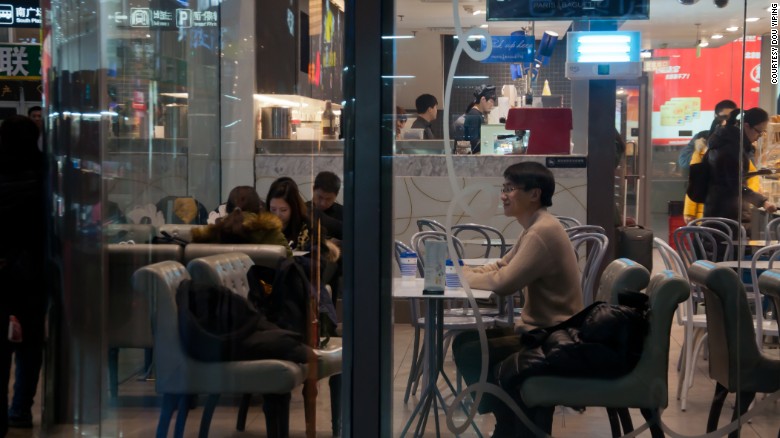Lu-Hai Liang, CNN March 30, 2015
Beijing (CNN) Five years ago, Beijinger Robert Zhao went on a trip
to Tibet. What he encountered left him confused but intrigued. A
science graduate from China's elite Tsinghua University, he had been
taught to mistrust superstition and religion, but in the culture and
devotion of the Buddhists he met he found something worth knowing.
Now 25, he is considering giving up his job and becoming a monk.
"It means I will have to give up everything of the ordinary world," he
told CNN.
to Tibet. What he encountered left him confused but intrigued. A
science graduate from China's elite Tsinghua University, he had been
taught to mistrust superstition and religion, but in the culture and
devotion of the Buddhists he met he found something worth knowing.
Now 25, he is considering giving up his job and becoming a monk.
"It means I will have to give up everything of the ordinary world," he
told CNN.

Robert Zhao is considering becoming a Buddhist monk.
However, it's not always easy to combine Buddhist beliefs with the
demands of modern life. Zhao works as an assistant to the boss of an environmental company. His religion means it's difficult to entertain
clients and partners - a key part of the role.
demands of modern life. Zhao works as an assistant to the boss of an environmental company. His religion means it's difficult to entertain
clients and partners - a key part of the role.
"Not drinking, smoking or eating meat affects my socializing. So the
company has to send someone else to go with me, which creates extra expenses," he says. Zhao has not told his family about his desire to
become a monk yet, fearing that they might oppose it.
company has to send someone else to go with me, which creates extra expenses," he says. Zhao has not told his family about his desire to
become a monk yet, fearing that they might oppose it.



